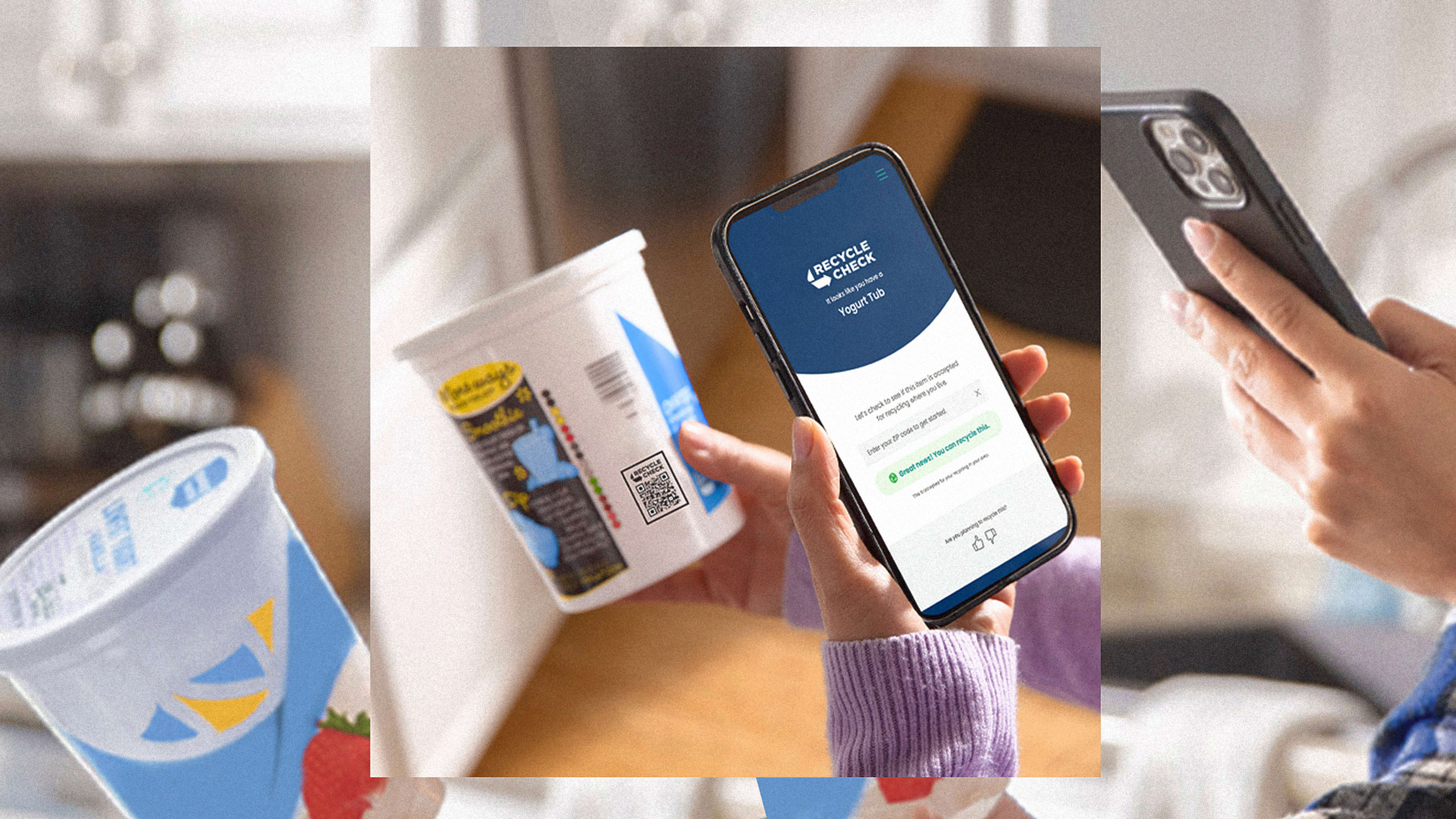If you want to recycle a plastic bottle or styrofoam container, you might turn it over to see the triangular recycling symbol on the bottom. But while that may tell you what kind of plastic it’s made of, it doesn’t really tell you what you can recycle at your curb. There’s no federal recycling program in the U.S., meaning every community has its own system with its own rules. That leaves a confusing landscape for people who may not know what they can set out in their bins, and provides no easy way for companies to say whether or not their packaging can actually be recycled.
But if you turn over a package and see a QR code on some products later this year, you can scan that code and go to a tool from the Recycling Partnership, a nonprofit working to improve recycling. Called Recycle Check, the tool will ask you to enter your ZIP code or allow location sharing, and will then tell you if that packaging can be recycled where you live with a simple “yes” or “no.”
Sarah Dearman, the Recycling Partnership’s chief innovation officer, says 60% of people are confused by what and how to recycle. “We provide people with education and local information, but at the end of the day there are still [more than] 9,000 different recycling programs in the U.S.,” she says. “What you can recycle where you live is probably not the same as what I can recycle where I live.” For example, some curbside recycling programs accept aluminum foil, while others don’t; the same is true for materials like wax-coated milk cartons or takeout containers.
And if you just toss anything into the recycling bins in the hope that some of it is right, that can actually do more harm than good. This trend of “wishcycling” can contaminate recycling centers, leading to more costs and even damage to recycling equipment.
The Recycling Partnership is already working with a few companies to add the QR code onto their packaging: General Mills and Horizon Origin are set to debut those labels later this year. Recycle Check also has an online chatbot that people can use to enter their location and answer questions about what sort of material the item they’re trying to recycle is made of. That chatbot asks increasingly specific questions, so you can learn broadly about plastic, for example, but also about plastic bags, plastic wrap, plastic bottles, and more.
Recycle Check uses the nonprofit’s National Recycling Database, which relies on machine learning and automation to gather recycling information from different community and government websites. Dearman says this database covers 97% of the country. Still, she adds, 40% of the U.S. doesn’t have easy access to recycling, which she defines as being as easy to recycle something as it is to throw it away.
Another recycling symbol on a package doesn’t completely fix our fragmented recycling landscape, or make it any easier for people to recycle where no infrastructure is in place. And a code that brands have to adopt may be difficult to scale. But recycling symbols may soon change anyway.
Recently the Environmental Protection Agency, along with environmental groups, called on the Federal Trade Commission to remove that iconic circular arrow symbol from plastics that aren’t actually recyclable, saying it’s “misleading.” The numbers inside the symbol simply categorize the plastic by type; having the symbol there doesn’t necessarily mean the packaging is actually recyclable. That could be one of the many changes coming as part of the FTC’s updates to its Green Guides, which are meant to prevent companies from making unsubstantiated environmental claims.
Recognize your brand’s excellence by applying to this year’s Brands That Matter Awards before the early-rate deadline, May 3.
